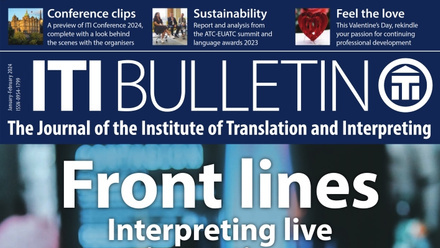Use of interpreters in the asylum process
ITI recently submitted two documents in response to the Chief Inspector of Borders and Immigration’s recent call for evidence about the use of interpreters in the asylum process.
In the first, the Institute made a number of recommendations, including:
- Interpreters should be able to speak in the asylum seeker’s language as competently as a native speaker, including specific dialects
- Interpreters should receive adequate briefing
- Interpreting should only be conducted by professional interpreters
- Requirements for interpreters involved in remote interpreting (e.g. qualifications, experience and briefings) should be the same as for those involved in face-to-face interviews
- Remote interpreting should only be used when the location of participants or the lack of local interpreters with relevant qualifications precludes the use of in-person interpreters.
As a result of a deadline extension to enable additional consultation, the Institute invited members to submit their own experiences which were then combined into a summary report. Topics raised included concern at the very long length of some interviews, leading to interpreter fatigue, unsatisfactory remuneration rates for this type of work, and the automatic assumption that interpreters were responsible for errors, which was not invariably the case.
The two documents are available to read here:






